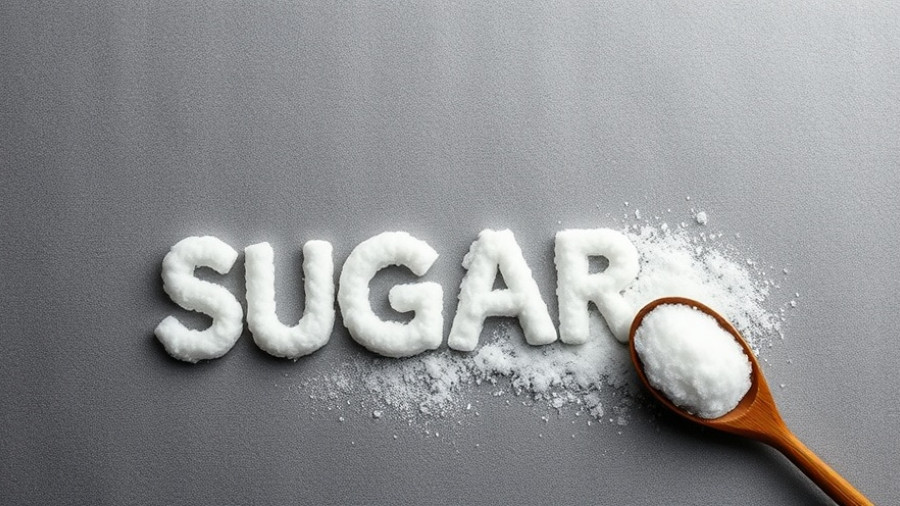
The Sweet Trap: Understanding Sugar's Role in Memory and Cognition
As the modern diet continues to skew towards high sugar consumption, it's essential to explore how these sweet additives affect cognitive functions, particularly memory. With sugar being a primary energy source for the brain, one might assume that more sugar equates to better mental performance. However, research suggests otherwise, highlighting the detrimental impacts of excessive sugar on cognitive abilities.
What the Research Says: Sugar's Negative Effects
A systematic review published in the journal Nutrients consolidates evidence from various studies linking high sugar intake to cognitive decline. The findings indicate a troubling trend: both short-term and long-term sugar consumption is positively correlated with decreased cognitive functions, particularly in memory-related tasks.
Studies assert that chronic overconsumption of free and added sugars can impair various cognitive domains, such as attention, problem-solving, and decision-making, with potential links to mood disorders. Long-term sugar consumption, particularly from sources like sugary beverages, is associated with inflammation and oxidative stress in the brain, leading to further cognitive impairments.
The Mechanism: How Sugar Affects the Brain
High-glycemic foods trigger rapid increases in blood glucose levels, stimulating the brain's reward centers similar to addictive substances, potentially fostering cravings and overeating. This behavior, while beneficial for prehistoric humans searching for calorie-dense food, has turned detrimental in the context of today's abundance.
Interestingly, sugar’s immediate effects on memory are nuanced. There is evidence of a "glucose facilitation effect" — a temporary cognitive enhancement following sugar intake, largely dependent on the individual’s glycemic control. Yet, relying on sugar for cognitive boosts can backfire, leading to a cycle of sugar dependence and extensive cognitive deficits over time.
Exploring Natural Alternatives for Brain Health
Luckily, there are ways to combat the negative impacts of sugar. Opting for natural sources of sugar, such as fruits, brings additional nutrients and fiber that can mitigate the rapid blood sugar spikes associated with added sugars. Foods like berries, nuts, and whole grains are excellent choices to support brain health and cognitive function.
Natural supplements such as omega-3 fatty acids have been shown to improve memory and cognitive abilities. A diet rich in antioxidants from fruits and vegetables may also create a protective effect on the brain, aiding in memory retention and overall cognitive performance.
Practical Tips for Reducing Sugar Intake
- Mindful Eating: Pay attention to food labels and general sugar intake.
- Healthy Swaps: Replace sugary snacks with fruits or nuts for a healthy brain boost.
- Balanced Diet: Focus on a balanced diet plan consisting of lean proteins, healthy fats, and whole grains to maintain steady blood sugar levels.
- Hydration: Drink water instead of soda or juice; infuse it with fruits for flavor.
Adopting these strategies not only aids in reducing sugar intake but enhances overall cognitive health, which is crucial as we age.
Take Action: Prioritize Your Brain Health
Reducing sugar consumption can lead to significant improvements in cognitive function, mood stability, and overall health. Consider tracking your daily sugar intake and gradually substituting unhealthy options with more nutritious choices as part of a holistic approach to wellness.
By making these simple changes, you’ll be taking proactive steps toward achieving better brain health and cognitive clarity.
 Add Element
Add Element  Add Row
Add Row 



Write A Comment